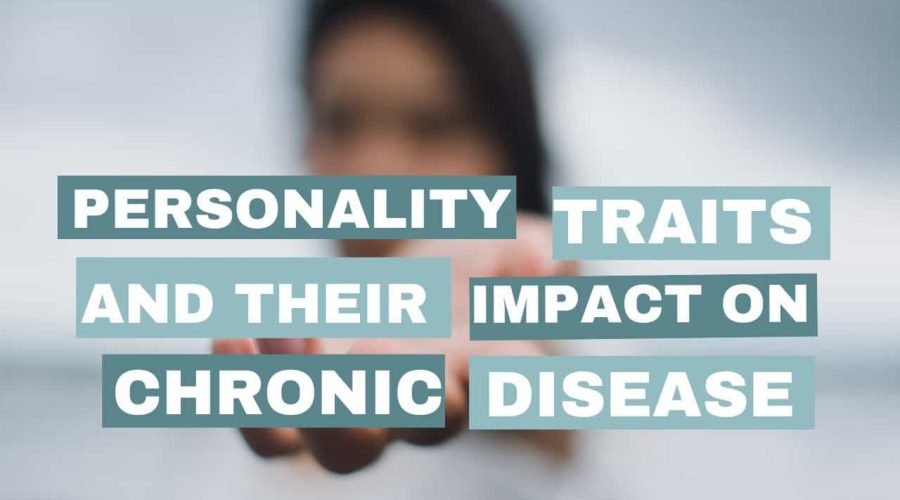Introduction
In the ongoing pursuit of unraveling the intricate determinants of chronic diseases, scientific inquiry has ventured into the compelling interplay between personality traits and health outcomes. While discussions surrounding chronic disease typically revolve around genetic predispositions, lifestyle choices, and environmental influences, it is equally enlightening to explore how specific personality traits may contribute to an elevated susceptibility to health risks. In this article, I will meticulously examine distinct personality attributes and their potential ramifications on chronic disease susceptibility. These attributes encompass:
1. Prioritizing Others Over Oneself
Individuals who consistently prioritize the emotional needs of others at the expense of their own well-being may encounter an increased vulnerability to chronic diseases. This altruistic inclination often culminates in chronic stress, burnout, and emotional depletion, all recognized precursors to serious health ailments, including cardiovascular conditions and compromised immune functionality.
2. Staunch Adherence to Rigid Societal Roles and an Overbearing Emphasis on Duty
A resolute commitment to societal roles, duties, and responsibilities can inadvertently engender chronic stress and anxiety. Those who feel compelled to adhere rigidly to external expectations that do not align with their values may inadvertently neglect self-care, thereby heightening their susceptibility to health-related adversities. This predicament may also lead to an inauthentic existence, wherein individuals find themselves assuming personas designed to please others instead of living an authentic existence.
3. Unyielding Drive
The perpetual impetus to relentlessly push oneself to the limit can precipitate chronic stress. This prolonged state of heightened stress can manifest physiologically, resulting in conditions such as hypertension, digestive disorders, and compromised immune defenses.
4. Excessive External Focus
A preoccupation bordering on obsession with others’ opinions and judgments can be a wellspring of chronic anxiety. Anxiety, in turn, has been correlated with an array of chronic maladies, encompassing cardiovascular afflictions and gastrointestinal disorders.
5. Pervasive Multitasking
Contemporary lifestyles often advocate for multitasking, yet it can be a wellspring of chronic stress and compromised well-being. The ceaseless juggling of multiple tasks can overwhelm cognitive faculties, impinging upon executive functions, and thereby fostering chronic stress-related health conditions.
6. Hyper-Responsibility and Conscientiousness
While conscientiousness is generally regarded as a commendable trait, an excessive manifestation thereof, often synonymous with hyper-responsibility or perfectionism, can prove deleterious. Such individuals may find themselves ensnared in the throes of chronic anxiety and stress, leading to chronic health issues over the long term.
7. Suppression of Anger
The repression of emotions, notably the experience of anger, can exact a toll on both mental and physical well-being. Prolonged suppression of anger has been empirically linked to conditions such as hypertension and autoimmune disorders.
8. Belief in Responsibility for Others’ Emotions
The unwavering conviction that one bears sole responsibility for the emotional states of others can result in persistent emotional strain. This enduring emotional burden is invariably associated with chronic conditions, spanning from depression and anxiety disorders to cardiovascular afflictions.
9. Fear of Disappointing Others
A pervasive apprehension regarding disappointing others can foster a chronic compulsion to appease everyone, often at the expense of one’s own health. This protracted state of stress can manifest physically, yielding conditions such as chronic fatigue syndrome and autoimmune diseases.
Conclusion
While it remains imperative to acknowledge that personality traits alone do not singularly dictate one’s risk profile for chronic diseases, their influence on overall health and well-being is incontrovertible. Individuals characterized by an unwavering concern for others, unyielding adherence to societal roles, relentless drive, excessive external fixation, perpetual multitasking, pronounced hyper-responsibility and conscientiousness, emotional repression, an unwavering conviction of sole responsibility for others’ emotional states, and an unwavering commitment to never disillusion anyone must judiciously acknowledge the potential health implications of these attributes. Striking a harmonious equilibrium between tending to the needs of others and fostering self-care stands as an indispensable endeavor for the preservation of robust physical and mental health.
Seeking guidance and support to address the beliefs behind these behavioral patterns.
This should be a top priority for every health-conscious individual. Addressing these patterns on a subconscious level, provides the most rapid and lasting change. These personality characteristics are well learned behavioral patterns that have been programmed into the subconscious mind by our past experiences. Transformational Hypnosis is the fastest and most effective way to address subconscious patterns.
If you need help locating, and addressing these deep rooted, subconscious beliefs, I would be happy to help you.
